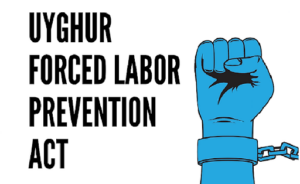Navigating the intricate world of supply chain management has never been more challenging, especially with the recent enforcement of the Uyghur Forced Labor Prevention Act (UFLPA). Businesses are facing heightened scrutiny and stringent regulations when it comes to sourcing products and materials from certain regions, particularly the Xinjiang Uyghur Autonomous Region of the People’s Republic of China. The UFLPA establishes strict guidelines to ensure that goods entering the United States are not produced using forced labor.
In this ever-evolving landscape, Unilogic emerges as a reliable partner, offering UFLPA Supply Chain Solutions as a CFS bonded warehouse provider. With a deep understanding of the complexities surrounding the UFLPA and its implications for supply chains, Unilogic stands ready to help businesses navigate these challenges seamlessly. In this blog, we will delve into the significance of the UFLPA, its impact on supply chains, and how Unilogic’s expertise can ensure that your shipments meet compliance requirements effortlessly.
What Is The UFLPA?
The Uyghur Forced Labor Prevention Act (UFLPA) is a piece of legislation enacted by the United States government to address concerns related to forced labor and human rights abuses in the Xinjiang Uyghur Autonomous Region of the People’s Republic of China. This act establishes strict guidelines and restrictions on the importation of goods, wares, articles, and merchandise that are mined, produced, or manufactured, either wholly or in part, in the Xinjiang region, or that are produced by certain entities associated with forced labor practices.
Under the UFLPA, there is a presumption that such goods are prohibited from entry into the United States unless the Commissioner of U.S. Customs and Border Protection (CBP) determines, based on clear and convincing evidence, that the goods were not produced using forced labor or that the UFLPA does not apply to those specific goods. The goal of this act is to prevent merchandise made with forced labor from entering the U.S. market, contributing to efforts to combat forced labor and human rights violations in the Xinjiang region.
What Does This Have To Do With Supply Chains?
The Uyghur Forced Labor Prevention Act (UFLPA) has significant implications for global supply chains. It directly addresses concerns related to forced labor and human rights abuses in the Xinjiang Uyghur Autonomous Region of China, an area known for its role in various supply chains.
Here’s how the UFLPA is related to supply chains:
- Supply Chain Transparency – The UFLPA places a strong emphasis on transparency within supply chains. It requires companies to verify and certify that their products are not produced using forced labor from the Xinjiang region. This means companies must closely examine their supply chains to ensure compliance.
- Restrictions on Imports – The act prohibits the importation of goods, wares, articles, and merchandise that are linked to forced labor practices in Xinjiang. This directly affects companies that rely on products or components from this region, as they may face restrictions or prohibitions on importing these goods into the United States.
- Due Diligence – Companies engaged in international trade and supply chain management must conduct thorough due diligence to ensure their products are not tainted by forced labor. This involves scrutinizing suppliers, verifying labor practices, and providing evidence of compliance with UFLPA requirements.
- Legal and Reputational Risks – Non-compliance with the UFLPA not only carries legal risks, including the seizure of goods, but also reputational risks. Companies found to be associated with forced labor or human rights abuses may face public backlash and damage to their brand image.
The UFLPA places an emphasis on supply chain transparency and ethical sourcing practices. It aims to prevent products linked to forced labor from entering the U.S. market, which has wide-reaching implications for businesses and their supply chain operations. Companies need to adapt their supply chain strategies and practices to comply with this legislation and ensure ethical sourcing of goods and materials.
Unilogic’s Bonded Warehouse Solutions for Seamless Supply Chains
Unilogic, as a CFS bonded warehouse provider, plays a pivotal role in helping businesses navigate the complexities of the Uyghur Forced Labor Prevention Act (UFLPA) requirements. Our expertise and services are tailored to ensure that shipments move seamlessly through the supply chain, even in the face of stringent regulations.
Here’s how Unilogic’s services align with the new UFLPA requirements:
- Compliance Assurance – We understand the importance of compliance with UFLPA regulations. Unilogic offers meticulous inventory management and tracking systems to verify the origin of goods, ensuring that they do not originate from the Xinjiang region or involve forced labor.
- Bonded Warehousing – Our bonded warehousing solutions provide a secure and controlled environment for your goods, allowing for efficient storage and inspection. This is crucial for businesses seeking to demonstrate compliance with UFLPA requirements.
- Customs Expertise – Navigating customs regulations can be challenging, especially when dealing with goods subject to UFLPA restrictions. Unilogic’s team of customs experts ensures that all necessary documentation and declarations are accurate and up to date.
- Risk Mitigation – With our services, businesses can mitigate the risks associated with non-compliance, including potential legal issues and damage to their reputation.
Unilogic is your trusted partner in the ever-evolving landscape of international trade compliance, particularly in the context of UFLPA requirements. Our bonded warehouse solutions and customs expertise provide businesses with the assurance they need to maintain a smooth and compliant supply chain while upholding ethical sourcing practices. We are committed to helping you meet UFLPA requirements while ensuring the hassle-free movement of your shipments.




